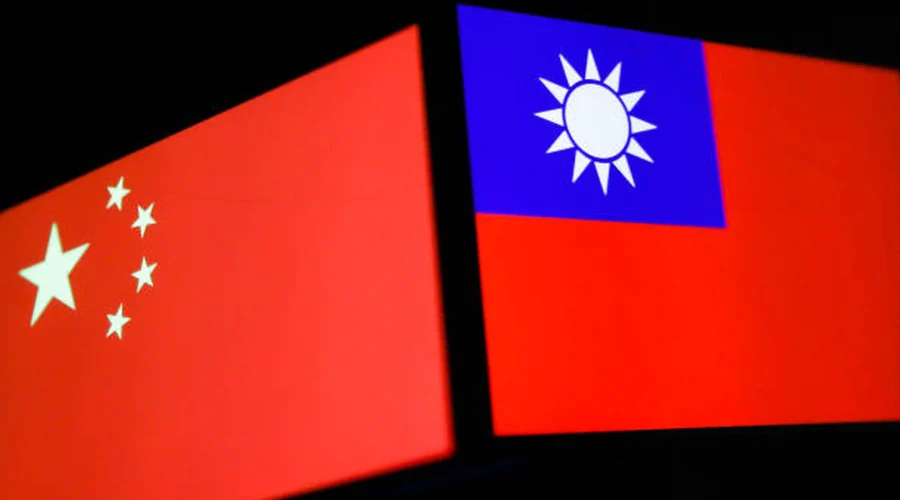China makes Taiwan reunification seem imminent in white-paper. The Chinese Communist Party (CCP) dishes out a deliberate impression that China’s “reunification” of Taiwan is imminent. Such is the tenor of its latest white paper on the island-nation which it hurriedly issued in the wake of the controversial Taipei visit of US House Speaker Nancy Pelosi a few days ago.
The paper, the third in CCP history, is titled, “The Taiwan Question and China’s Reunification in the New Era”. It is lettered keeping in mind China’s typical shock-strategy. It talks of the “reunification” as a thing of the past, though that is not the truth at all, to justify its aggressive military behavior towards Taiwan.
Try this for size: “We maintain that after peaceful reunification, Taiwan may continue its current social system and enjoy a high degree of autonomy in accordance with the law. The two social systems will develop side by side for a long time to come. One Country is the precondition and foundation of Two Systems; Two Systems is subordinate to and derives from One Country; and the two are integrated under the one-China principle.”

For good measure, the white paper reassures the world community of things being normal as before after the reunification. “After reunification, foreign countries can continue to develop economic and cultural relations with Taiwan. With the approval of the central government of China, they may set up consulates or other official and quasi-official institutions in Taiwan, international organizations and agencies may establish offices, relevant international conventions can be applied, and relevant international conferences can be held there.”
The white paper takes China’s ownership theory a step forward. It refers to the One Country Two Systems principle in the case of Hong Kong and conveys the message that direct intervention by the mainland was required to release the island from the grip of “separatist forces”.
Without mentioning the draconian National Security Law, the paper says: “For a time, Hong Kong faced a period of damaging social unrest caused by anti-China agitators both inside and outside the region. Based on a clear understanding of the situation there, the CPC and the Chinese government upheld the One Country, Two Systems principle, made some appropriate improvements, and took a series of measures that addressed both the symptoms and root causes of the unrest. Order was restored and prosperity returned to Hong Kong. This has laid a solid foundation for the law-based governance of Hong Kong and Macao and the long-term continuation of One Country, Two Systems.”
The white paper affirms the country’s tone of belligerence when it comes to protecting its right over Taiwan. It does not shy away from admitting that force will be resorted to if required. “But we will not renounce the use of force, and we reserve the option of taking all necessary measures. This is to guard against external interference and all separatist activities. In no way does it target our fellow Chinese in Taiwan. Use of force would be the last resort taken under compelling circumstances. We will only be forced to take drastic measures to respond to the provocation of separatist elements or external forces should they ever cross our red lines.”
Warning the United States, without any reference to Pelosi or members of other delegations who have made controversial visits to Taiwan in the recent past, the white paper says: “They are clouding the one-China principle in uncertainty and compromising its integrity. They are contriving “official” exchanges with Taiwan, increasing arms sales, and colluding in military provocation. To help Taiwan expand its ‘international space’, they are inducing other countries to interfere in Taiwan affairs, and concocting Taiwan-related bills that infringe upon the sovereignty of China. They are creating confusion around what is black and white, right and wrong.”
What has the CCP planned for Taiwan? It is a five-point program to “achieve complete national reunification”: First, the one-China principle must be upheld, and no individual or force should be allowed to separate Taiwan from China. Second, it is imperative to strive for the wellbeing of all Chinese people, including those in Taiwan, and to realize the aspirations of all Chinese people for a better life, the paper says.
Third, “we must follow the principles of freeing the mind, seeking truth from facts, maintaining the right political orientation, and breaking new ground, and defend the fundamental interests of the nation and the core interests of the state in formulating principles and policies on work related to Taiwan”. Fourth, it is necessary to have the courage and skill to fight against any force that attempts to undermine China’s sovereignty and territorial integrity or stands in the way of its reunification.
Fifth, extensive unity and solidarity must be upheld to mobilize all factors to fight against any force that would divide the country, and pool strengths to advance national reunification.
The Chinese government has published two previous white papers on Taiwan. One was The Taiwan Question and Reunification of China in August 1993, and the other was The One-China Principle and the Taiwan Issue in February 2000. These two white papers provided a comprehensive and systematic elaboration of the basic principles and policies regarding the resolution of the Taiwan question. This new white paper is being released to reiterate the fact that Taiwan is part of China, to demonstrate the resolve of the CPC and the Chinese people and their commitment to national reunification, and to emphasize the position and policies of the CPC and the Chinese government in the new era.

